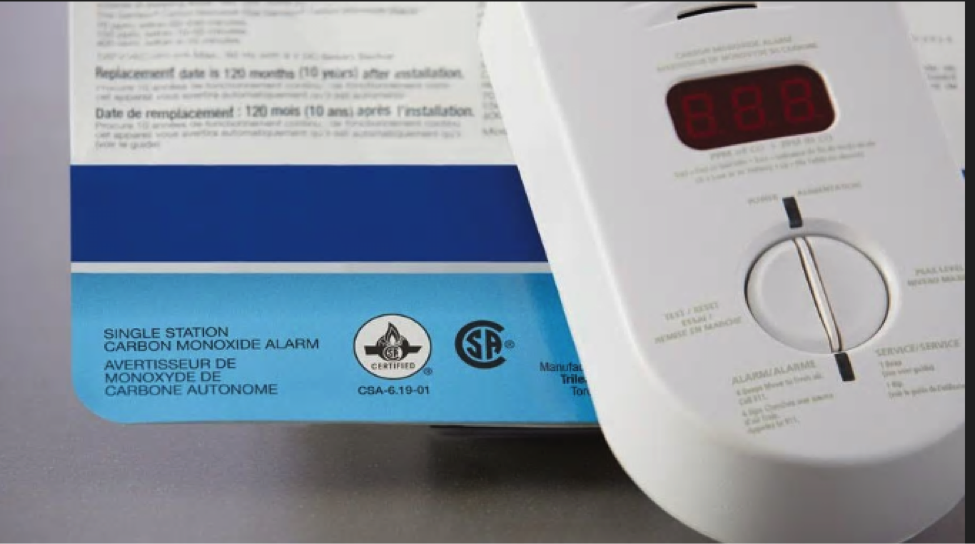When looking for a carbon monoxide detector, there are a few important considerations. The most important is that it has a Canadian certification label referencing the following standard: CSA 6.19, Residential carbon monoxide alarming devices.
Always be sure to follow the manufacturer’s installation/operating instructions for the specific model you purchase. These instructions contain valuable information such as what the carbon monoxide device sensing and alarming thresholds will be.
The most important [consideration] is that it has a Canadian certification label referencing the following standard: CSA 6.19, Residential carbon monoxide alarming devices.
Other tips:
- If your CO detector is battery-operated, be sure to test it regularly.
- CO detectors have a lifespan of seven to 10 years. Check the date on the CO detector and replace when necessary. If your CO detector does not have a date, it is likely older than 10 years and needs to be replaced.
- If you live in a rental that does not have a CO detector that is hard-wired in, purchase a variety that plugs in directly to the wall or that is battery-operated. However, make sure if you have a plug-in variety it also has a battery back up in case of power outage.
- When travelling, pack a portable battery-operated CO detector.
- CO detectors should ideally be placed near sleeping areas.
- Remember that installation of hard-wired CO detectors must be done under permit, either by a licensed electrical contractor (find one here) or under a homeowner permit.
Learn more about the symptoms of CO and what to do if your alarm does go off.




